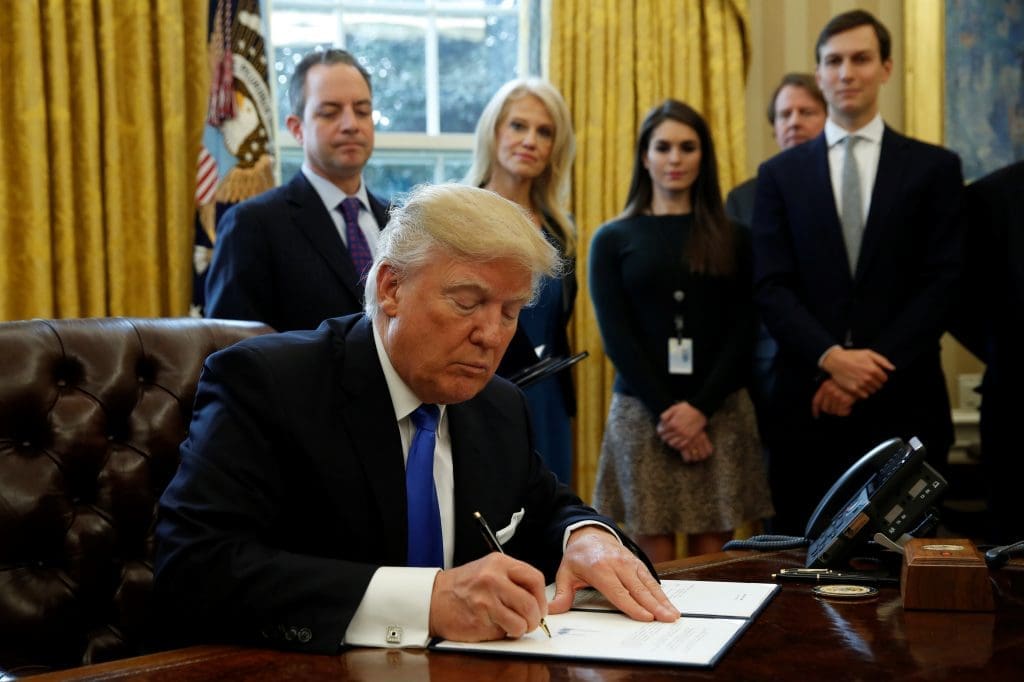
Get stories and expert advice on all things related to college and parenting.

President Trump signed an Executive Order on January 27, 2017 making immediate changes to immigration policy in the United States. The provisions with direct impact on campuses across the country include the exclusion of all people from seven countries — Syria, Iran, Iraq, Libya, Yemen, Somalia and Sudan — for 90 days. At the end of this period, the Secretary of Homeland Security is to identify which of these countries, and any others, should have their residents restricted from entry into the United States for a longer period.
As reported by a number of news outlets (such as The Washington Post, USA Today, ABC News) many colleges have students and professors stranded abroad, unable to return to campus as spring semester begins. Caught by surprise, those who went home for winter vacation or were abroad for study or travel and hold passports from the restricted countries are not being allowed to return. This includes people living in countries not on the list but who were born in or travel with a passport from one of the banned countries.
The seven countries sent over 16,000 students to campuses in the United States during the last school year, 2015-2016, according to the Institute of International Education. For students and faculty already in the United States before the Executive Order was signed, there are many questions about whether their visas could be revoked, if they could be deported before the end of the school year and whether they will be permitted to return in future semesters to finish their educational program or professional commitments. The creation and implementation of on-going regulations in response to the order will be the responsibility of the incoming Secretaries of State and Homeland Security, although other agencies and Congress could also be involved, and will eventually explain who and under what circumstances will be granted visas for education.
In addition to empty seats in classrooms and absent professors, students may see other consequences from these changes in immigration policy. Absent sports teammates, research fellows, teaching assistants and roommates may influence campuses and student life for the upcoming semester.
Institutions may also experience financial stress over the unexpected loss of tuition and fees. Students, however, should not see charges to make up for the loss to their school as costs are agreed to in enrollment contracts before each school year starts and represent a commitment for the academic year between the student and school. If this policy ends up deterring international students from attending schools in the United States, there could be greater financial repercussions down the road as students from abroad attending and paying for an American education continue to increase in total numbers and as a percentage of students on campuses.
As any international student and American student who has studied abroad knows, visa application rules can be difficult to navigate in the best of times. The circumstances created by the Executive Order will certainly sow confusion and uncertainty for the next few months, and possibly longer, with both predictable and unforeseen consequences ahead.
If you or your student has questions or concerns, you can the call the college's office for International Study or Global Engagement. The President’s Office will always be able to refer you to appropriate resources.